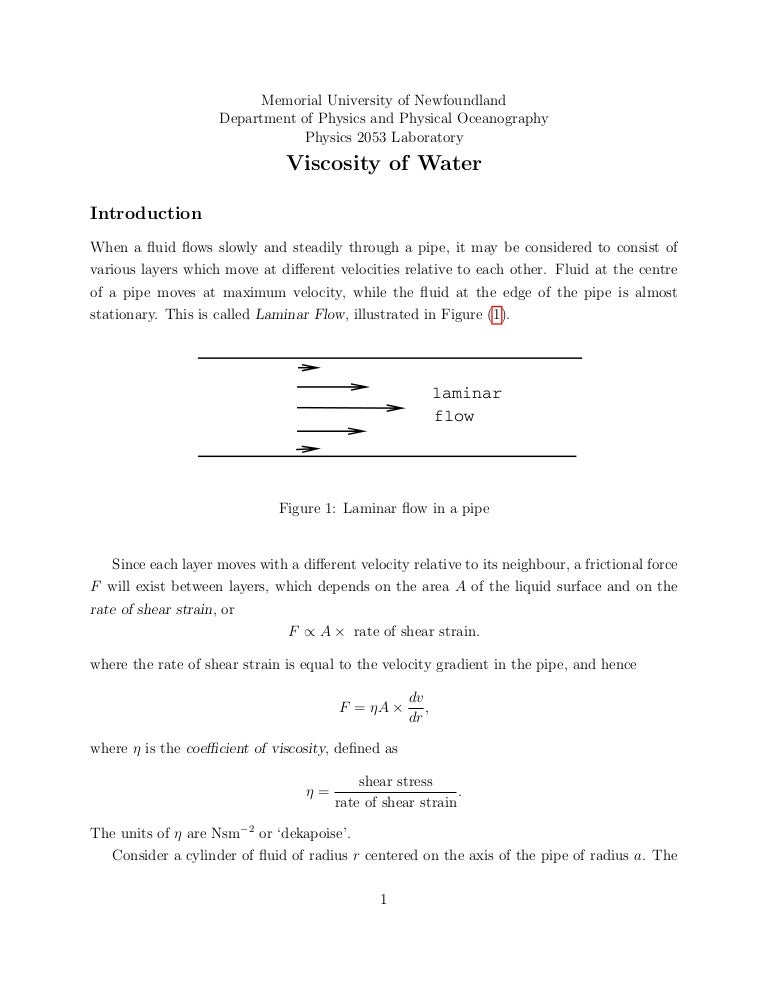

For all of these mechanisms, the key underlying control on groundwater movement is the viscous resistance resulting from the interaction of the fluid with solid surfaces in the aquifer (grain edges or fracture walls). Viscosity of Water Description Water is a chemical compound with the chemical formula H2O. Properties differs so much from clean water that heat transfer systems with ethylene glycol should be calculated thoroughly for actual temperature and solution. Tortuosity is a measure of how far fluid must go to “circumnavigate” its way around particles: higher tortuosity indicates that water must go farther to get to its destination (a more tortuous path). Specific heat, viscosity and specific weight of a water and ethylene glycol solution vary significantly with the percent of ethylene glycol and the temperature of the fluid. But what controls their magnitude? The main factors are grain size and shape, sorting, porosity (degree of compaction or fracture aperture), particle orientation or alignment that affects the tortuosity of the flow path, and cementation. So…that’s how we define permeability and hydraulic conductivity.

“thinner”), it will flow more easily through the aquifer. So even for the same aquifer, the hydraulic conductivity goes up if it is warmer! This makes some sense – if the water is less viscous (i.e. It is also important in considering the effects of temperature, because water viscosity decreases with increasing temperature: it’s less than half as viscous at 90° than at 32° F. The absolute or dynamic viscosity of water depends on the temperature as indicated below: 1 cP 0.01 poise 0.01 gram per cm second 0.001 Pascal second 1 milliPascal second 0.001 N.s/m2 Convert viscosity Water - Relative Viscosity vs.
WATER VISCOSITY MOVIE
water – whether you are thinking about an oil reservoir or contamination of groundwater by a gasoline spill). Water-Toothpaste Viscosity Movie This is a Quicktime movie of someone blasting water out the top of a funnel (the water just runs away), and then blasting a. This is important for comparing different fluids (say, oil vs.

More viscous fluids will flow more slowly through the same rock than less viscous ones. More specifically, it is the viscosity and density of the fluid that matter.


 0 kommentar(er)
0 kommentar(er)
